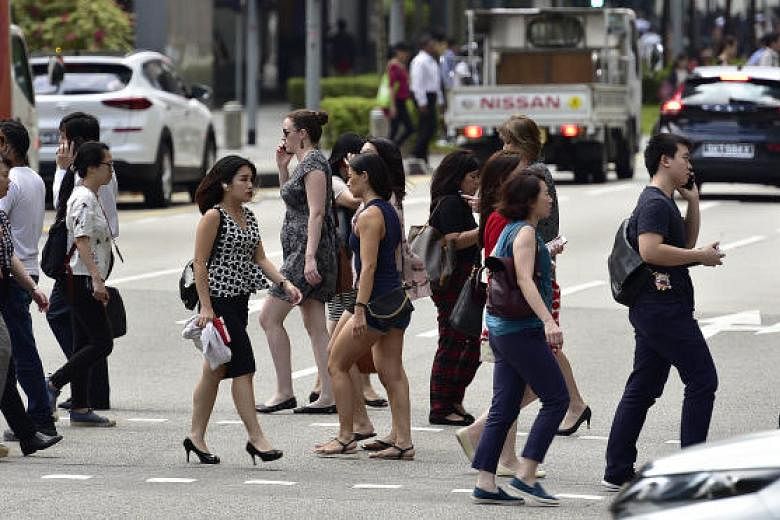SINGAPORE - More than 960 companies, which employ nearly half a million workers here between them, have adopted a set of good practices to address workplace unhappiness, including sexual harassment complaints, as of January this year.
As the scheme - the Tripartite Standard on Grievance Handling - is voluntary for employers, the Manpower Ministry (MOM) does not track if these employers abide by the standard.
Senior Parliamentary Secretary for Manpower and Education Low Yen Ling was addressing a question on Wednesday (May 8) by Nominated MP Walter Theseira in Parliament, who was concerned that the ministry does not monitor how many employers have adopted measures to manage sexual harassment at the workplace flagged under a separate advisory.
This advisory - the Tripartite Advisory for Managing Workplace Harassment - includes a sample copy of a harassment prevention policy for companies to refer to, and also defines what constitutes workplace and sexual harassment.
The standard adopted by the companies also covers sexual harassment complaints, but goes one step further than advisories to help jobseekers identify employers who have adopted such progressive practices.
Citing the Peeping Tom case at the National University of Singapore, Prof Theseira said: "If we're not putting in some effort to try to track, for example, the number of employers who are adhering to these guidelines, we would find it difficult to say anything credibly about how well we're addressing these concerns."
But Ms Low said the advisory was not tracked, as it is meant to provide guidance for employers and employees, and was a way for MOM to "develop a pipeline" for companies to eventually come on board the tripartite standard on grievance handling.
Although the advisory is optional, Ms Low explained that the authorities will still assess whether the employer has taken adequate measures in response to a harassment complaint.
"If the employer failed to address a workplace harassment case fairly, the Tripartite Alliance for Fair and Progressive Employment Practices (Tafep) would advise the employer to review the case again," she said.
Tafep will also work with the employer to put in place the measures outlined in the advisory, she added.
In egregious cases where companies fail to provide a safe environment for their workers, MOM can take action against the company, such as by curtailing work passes, said Ms Low.
The exchange follows a parliamentary debate on amendments to the Protection from Harassment Act on Tuesday, which allows for the setting up of "harassment courts" that cater to such cases.
Aggrieved employees can also file complaints with a resource centre run by Tafep, which was set up in March and is already operational, Ms Low said in response to a question by NMP Anthea Ong about the centre.
Depending on the case, this centre can connect affected employees with the police or the courts in serious cases of workplace harassment, and can also provide advice on the range of counselling services available to these employees, she said.
Correction note: This article has been edited for clarity.


